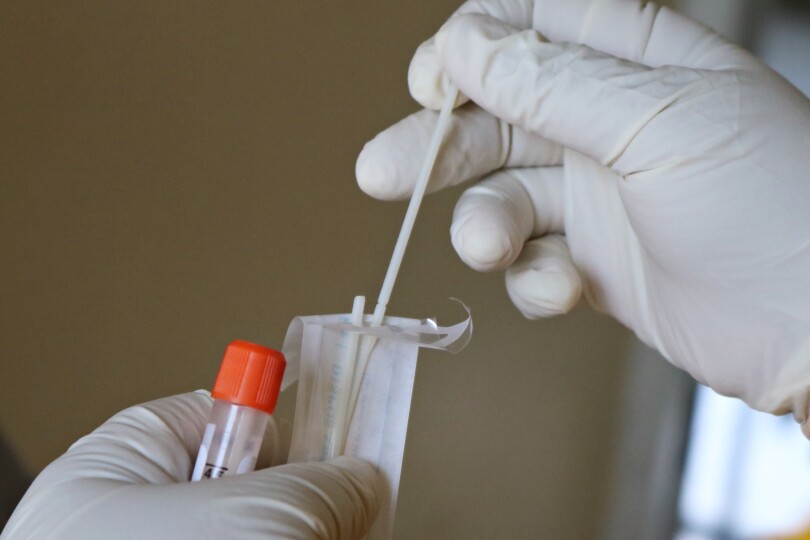Is Autonomous Driving coming to the UAE?
26 Apr 24
Lab ChatThe Global News Source for the World of Science and Chemicals
21 August 2023
Lab Chat
Scientists in the UAE have developed a groundbreaking new form of testing for Covid-19 which delivers results within minutes and could hold significant ramifications for mass diagnosis. Non-invasive, efficient and affordable, the test is simply applied to a subject’s skin after receiving a pinprick just as any normal bandage might be.
Through its pioneering use of gold nanoparticles, the bandage can then identify the presence of any antibodies which the body naturally develops in response to the coronavirus, thus indicating contraction of the latter. It can even isolate at which stage of its development the disease has reached, facilitating better diagnosis and quarantining.
Developed by researchers at NYU Abu Dhabi, the bandage relies on nanotechnology-engineered particles, called gold nanoparticles, which are just a billionth of a metre in diameter. They are able to bind quickly and effectively to the antibodies IgM and IgG which are produced in the presence of the SARS-CoV-2 virus, thus serving as valuable biomarkers of the disease.
As such, all that’s required for the bandage to work is for the subject to submit to a pinprick on their fingertip, then apply the bandage to the area. Thanks to the high sensitivity and specificity of the antigens, the bandage will quickly change colour to reflect the subject’s status, whether that be early immune, active immune or immune. The whole process takes mere minutes.
Perhaps the biggest draw of the technology is its efficient and non-invasive nature, since a subject can be diagnosed rapidly and without the need for uncomfortable mouth or nose swabs. What’s more, it’s cheap to manufacture and can be disposed of after use, making it attractive for deployment on a mass scale.
That means that rural communities or those without access to high-tech equipment could leverage the bandage to provide more accurate and accelerated diagnoses of Covid-19 patients. By facilitating early identification of infection, the bandage can allow authorities to quarantine sufferers, prevent viral outbreaks and divert resources accordingly.
Of course, the developers of this groundbreaking technology don’t plan to stop there. The coronavirus may have been the headline concern for the medical sector in recent times, but new pathogens and viruses are expected to surface in the months and years ahead.
Thankfully, the bandage can easily be modified to adapt to other pathogens, thus potentially preventing future pandemics.
Meanwhile, the NYU Abu Dhabi team behind the bandage plan to optimise its current form to make it even more effective. As well as incorporating porous microneedles into the device to allow for in-situ skin puncture, they also aim to integrate it with smart technology to create a phone-based application which can give readouts and contribute to location-based heat maps, thus enhancing its value on both a personal and societal scale
DOWNLOAD PDF

2 Day Seminar Program
@ ArabLab+ 2024
24 & 25 September 2024
22 Apr 24
Lab ChatYour stay in Dubai
Labkit
Product News
Chemkit
Product News
Thinking about exhibiting at ARABLAB 2024? Watch our video to find out more.
Join the world’s leading organisations…
Join our mailing list and receive the ARABLAB newsletter and event updates.